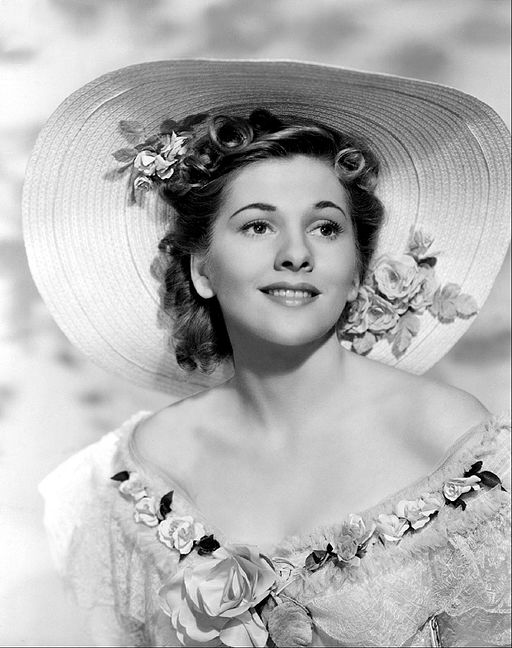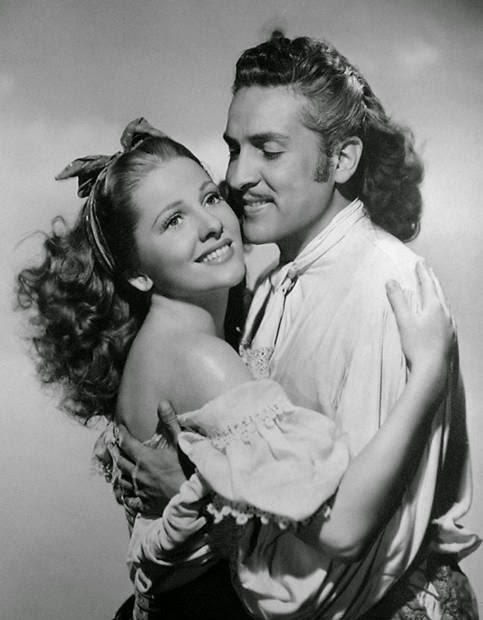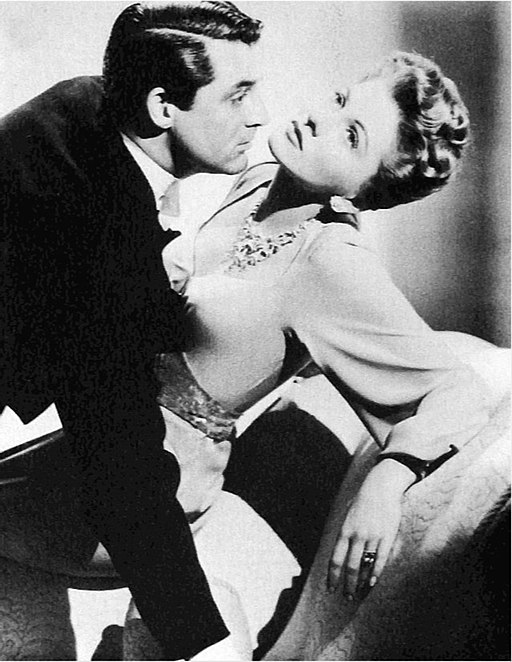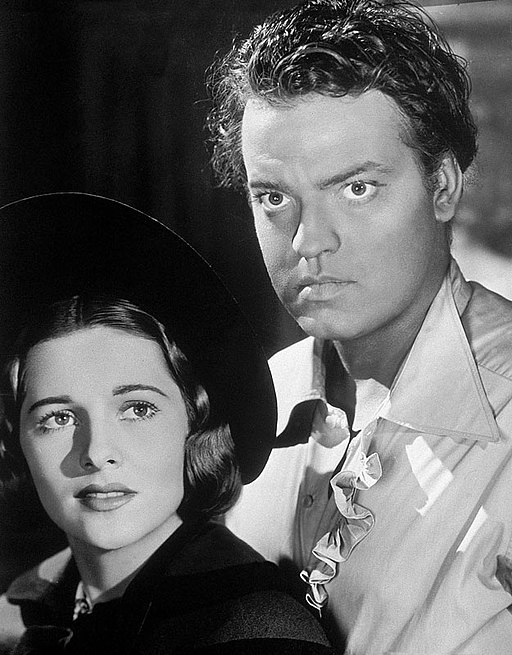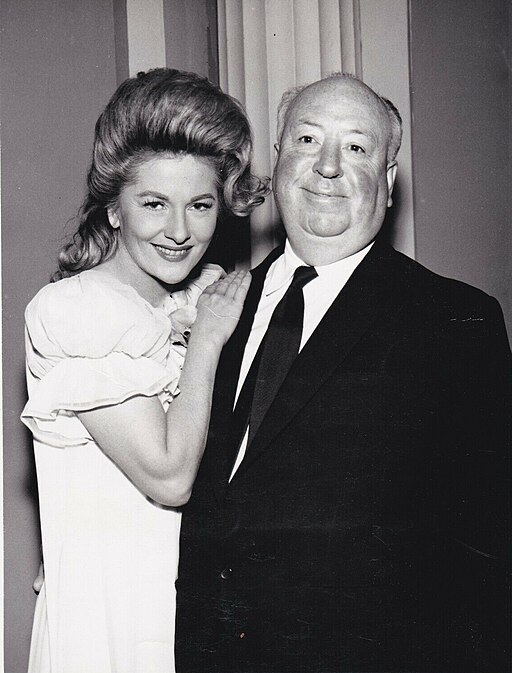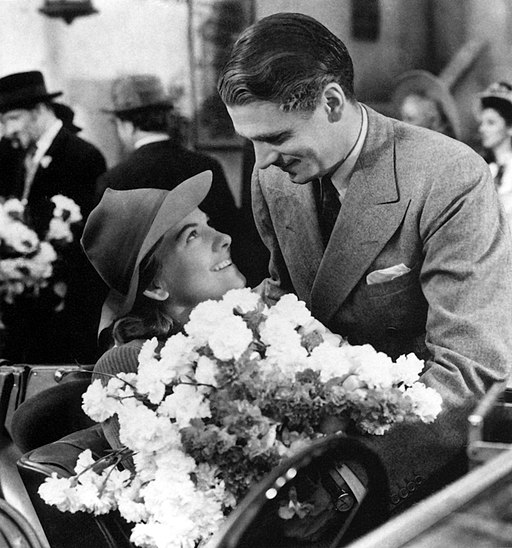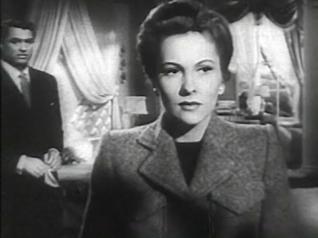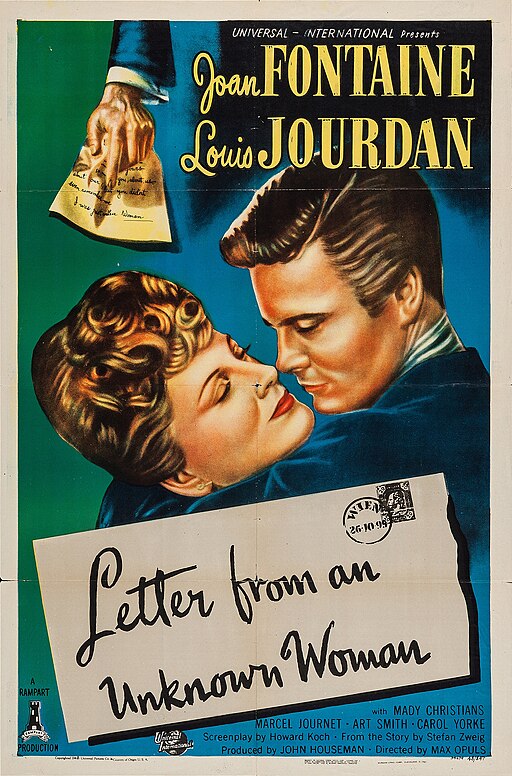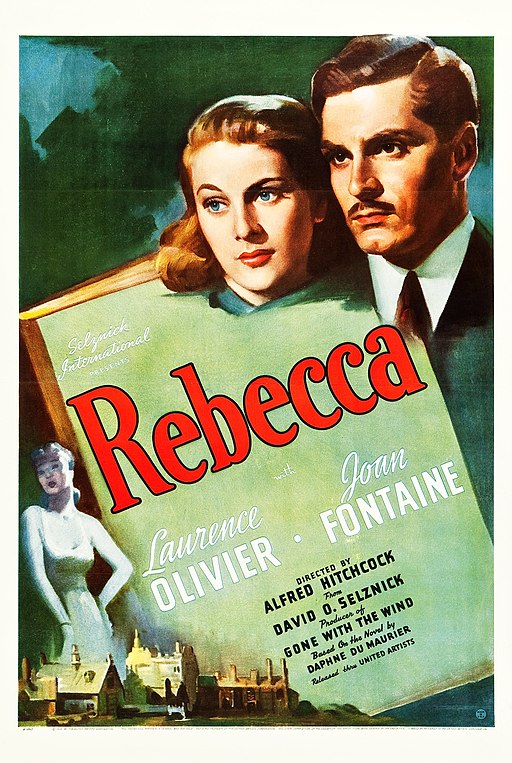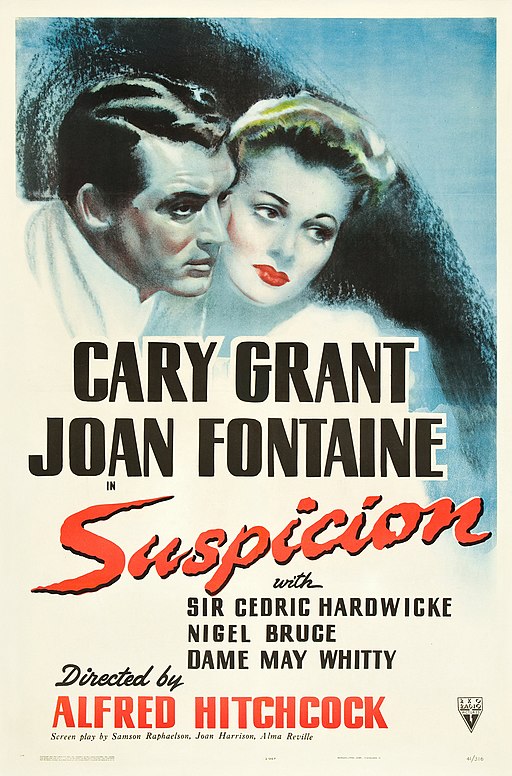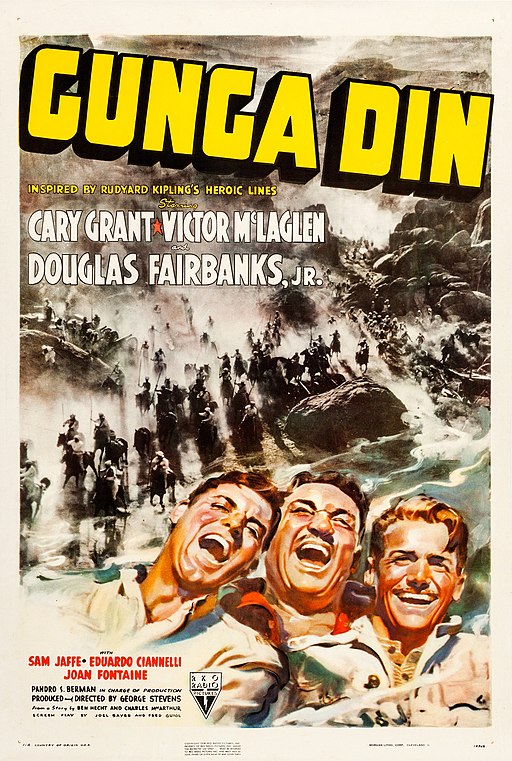Joan Fontaine
back| Full Name | Joan de Beauvoir de Havilland |
| Stage Name | Joan Fontaine |
| Born | October 22, 1917 |
| Birthplace | Tokyo, Japan |
| Died | December 15, 2013 |
| Buried | Ashes scattered in the Pacific Ocean near Carmel, California, USA |
| Married to | Brian Aherne (1939–1945) - William Dozier (1946–1951) - Collier Young (1952–1961) - Alfred Wright, Jr. (1964–1969) |
| Children | Deborah Leslie Dozier and Martita Pareja |
| Notable films | Rebecca (1940) - Suspicion (1941) - Jane Eyre (1943) - Ivanhoe (1952) |
Joan Fontaine
Hollywood's Woman of Mystery and Grace
Joan Fontaine's career spanned over four decades, during which she became known for her poise, elegance, and subtle strength in her performances. Her work, especially in films directed by Alfred Hitchcock, significantly contributed to the suspense and thriller genres.
She was also known for her longstanding rivalry with her sister, Olivia de Havilland, another prominent actress of the era. Joan Fontaine's legacy in the film industry continues to be celebrated for her contributions to classic Hollywood cinema.
Related
Joan Fontaine (1917 – 2013)
Biography and Analysis of her Movie Career
Joan Fontaine, born Joan de Beauvoir de Havilland on October 22, 1917, in Tokyo, Japan, had a cosmopolitan start to life. The daughter of Walter de Havilland, a British patent attorney, and Lillian Fontaine, a stage actress, Joan moved to California with her family during her childhood. Her older sister, Olivia de Havilland, would also become a famous actress. The sisters' relationship was strained from early on, a rivalry that would continue throughout their lives.
Joan's interest in acting took root in her teenage years, though her initial attempts were overshadowed by Olivia's success. Determined to carve her own path, Joan changed her last name to Fontaine, her mother's maiden name, to avoid confusion with her already famous sister.
Path to Stardom
Fontaine's early career in Hollywood was marked by minor roles and a struggle to find her footing. Her big break came with Alfred Hitchcock's "Rebecca" (1940), where she delivered a critically acclaimed performance. This role marked the beginning of her ascent in Hollywood, showcasing her ability to portray vulnerability and strength simultaneously.
The following year, Fontaine won the Academy Award for Best Actress for her role in Hitchcock's "Suspicion," beating her sister Olivia in the same category. This win cemented her place in Hollywood and intensified the rivalry with Olivia.
Personal Life and Marriages
Fontaine's personal life was as eventful as her professional one. She married four times:
- Brian Aherne, an actor, in 1939. Their marriage ended in 1945.
- William Dozier, a producer, in 1946. They had a daughter, Deborah, before divorcing in 1951.
- Collier Young, a film and television writer-producer, in 1952. This marriage lasted until 1961.
- Alfred Wright, Jr., a sports magazine editor, in 1964. They divorced in 1969.
In addition to her daughter Deborah, Fontaine adopted a Peruvian girl named Martita in the early 1950s, though Martita later estranged herself from the family.
Passions and Interests
Beyond acting, Fontaine was an avid golfer, pilot, balloonist, and interior decorator. Her love for the arts extended beyond the screen, as she engaged in various forms of artistic expression throughout her life.
Later Years and Death
Joan Fontaine's career gradually slowed down in the 1960s, and she made her last film appearance in 1966. She then turned to television and theater for a number of years before retiring completely from acting.
She passed away on December 15, 2013, at the age of 96, in her home in Carmel-by-the-Sea, California. The cause of death was reported as natural causes. Fontaine's death marked the end of an era, as she was among the last surviving stars from the Golden Age of Hollywood.
Legacy
Fontaine's legacy in Hollywood is marked by her nuanced performances, her elegant presence on screen, and her contributions to some of the classic films of the 20th century. Her life off-screen was equally colorful and complex, marked by her tumultuous relationships, personal endeavors, and a lifelong rivalry with her sister.
Video on the Feud between Sisters Joan Fontaine and Olivia de Havilland:
Her Spouses:
Brian Aherne
- Profession: British actor
- Marriage Duration: 1939–1945
- Overview: Brian Aherne was an accomplished actor, both on stage and in film. He had a successful career in Hollywood and was known for his roles in films such as "Juarez" (1939) and "I Confess" (1953). The marriage between Fontaine and Aherne was her first and occurred during the early years of her career. While the couple shared a background in acting, their marriage ultimately ended in divorce.
William Dozier
- Profession: Film and television producer
- Marriage Duration: 1946–1951
- Overview: William Dozier was perhaps best known as the producer of the 1960s "Batman" television series. He also had a significant career in Hollywood working on various other productions. Fontaine and Dozier's marriage lasted for five years, and they had a daughter, Deborah Leslie. Their relationship ended in divorce in the early 1950s.
Collier Young
- Profession: Film producer, writer
- Marriage Duration: 1952–1961
- Overview: Collier Young was a film producer and writer, known for his work in the film noir genre. He was involved in the production of several films in the 1940s and 1950s. Fontaine's marriage to Young was her longest, lasting about nine years. They did not have any children together, and the marriage ended in divorce.
Alfred Wright, Jr.
- Profession: Sports journalist, editor for Sports Illustrated
- Marriage Duration: 1964–1969
- Overview: Alfred Wright, Jr. was a journalist and editor, notably working for Sports Illustrated. His profession was outside the film industry, marking a departure from Fontaine's previous spouses. Their marriage, which lasted about five years, was Fontaine's last. The couple divorced, and Fontaine did not remarry after this.
Analysis of the Acting Style of Joan Fontaine:
Joan Fontaine's acting style was a remarkable blend of subtlety, vulnerability, and grace, which set her apart in the Golden Age of Hollywood. Her performances were characterized by a nuanced understanding of her characters, often conveying a depth of emotion with minimal outward expressions.
Subtlety and Nuance
Fontaine had a knack for portraying complex emotions through subtle gestures and facial expressions. In films like "Rebecca" and "Suspicion," her ability to convey a range of feelings—from innocence and naivety to fear and suspicion—without overacting, was a testament to her skill. This subtlety made her characters relatable and believable, allowing audiences to empathize with her on-screen personas.
Vulnerability and Emotional Depth
A hallmark of Fontaine's style was her portrayal of vulnerability. She had a unique talent for playing characters who were emotionally fragile or in turmoil, yet she imbued them with a quiet strength. In "Jane Eyre," for instance, her portrayal of the titular character is a study in emotional depth; she captures Jane's resilience, loneliness, and longing with a poignant sincerity.
Elegance and Poise
Fontaine's performances were often marked by an inherent elegance and poise, reflecting her upbringing and theater background. This grace was evident in her movement and speech, lending her characters a certain dignity, even in moments of distress or turmoil. In films like "Ivanhoe" and "Letter from an Unknown Woman," her poised demeanor added a layer of sophistication to her roles.
Versatility
Fontaine's versatility was another significant aspect of her acting. She seamlessly transitioned from romantic leads in dramas to more complex roles in suspense films. Her ability to adapt to different genres while maintaining her distinctive style is a testament to her range as an actress.
On-Screen Chemistry
Fontaine's ability to create compelling on-screen chemistry with her co-stars was a key element of her performances. Whether in romantic roles or in more adversarial ones, she managed to forge a convincing connection with her co-stars, which added a layer of authenticity to her films.
Legacy
Fontaine's acting style was a product of her time, yet it had a timeless quality. She belonged to an era where underplaying was more effective than overt theatrics. Her legacy lies in her ability to captivate audiences with a performance that was as much about what was unsaid as it was about the dialogue. This style made her a perfect fit for the films of Alfred Hitchcock, where the psychological undercurrents were as important as the overt storyline.
Awards and Recognition:
Academy Awards (Oscars)
- 1941: Nominated for Best Actress for "Rebecca"
- 1942: Won Best Actress for "Suspicion"
- 1944: Nominated for Best Actress for "The Constant Nymph"
Joan Fontaine's Oscar win for "Suspicion" marked her as the only actor to win an Academy Award for a performance in an Alfred Hitchcock film.
Golden Globe Awards
- 1948: Nominated for Best Actress in a Motion Picture – Drama for "Letter from an Unknown Woman"
New York Film Critics Circle Awards
- 1941: Won Best Actress for "Suspicion"
San Sebastián International Film Festival
- 1951: Won Best Actress for "September Affair" and "Born to Be Bad"
Other Honors and Recognitions
- Star on the Hollywood Walk of Fame: Fontaine received a star on the Hollywood Walk of Fame for her contributions to the motion picture industry, located at 1645 Vine Street.
- Screen Actors Guild Lifetime Achievement Award: Later in her career, Fontaine was honored with a Lifetime Achievement Award by the Screen Actors Guild, recognizing her enduring impact on the film industry.
Memorable Quotes from Joan Fontaine:
- On her career: "I hope I'll never get too old to learn, too old to take a new slant, too old to accept criticism, too old to give up hope, too old to dream."
- On sibling rivalry with Olivia de Havilland: "I married first, won the Oscar before Olivia did, and if I die first, she'll undoubtedly be livid because I beat her to it!"
- Reflecting on life: "If I can do one hundredth part for women that Eleanor Roosevelt did, I'll be proud."
- On Hollywood: "In Hollywood, a girl's virtue is much less important than her hairdo. You're judged by how you look, not by what you are. Hollywood's a place where they'll pay you a thousand dollars for a kiss, and fifty cents for your soul."
- About acting: "I was never very mature in my relationships with men. Maybe that's why I'm not married today. When it comes to relationships, I always feel like a sixteen-year-old."
- Regarding personal growth: "Above all, I learned that I can still learn."
- On success and failure: "A career is born in public - talent in privacy."
- Reflecting on her persona: "I seemed to be the only one who wasn't fighting. I was just trying to be independent."
Significance of "Rebecca" for her Career:
Joan Fontaine's performance in Alfred Hitchcock's "Rebecca" (1940) was a turning point in her career and is often considered one of her most significant roles. This film not only catapulted her to stardom but also demonstrated her remarkable acting abilities. Here are key aspects of how "Rebecca" impacted Joan Fontaine's career:
Breakthrough Role
- Before "Rebecca," Fontaine had appeared in several films but had not yet achieved significant recognition. Her portrayal of the unnamed protagonist, often referred to as the second Mrs. de Winter, provided her with a breakthrough role that showcased her talent to a wide audience.
Acting Prowess
- In "Rebecca," Fontaine delivered a nuanced performance, playing a young, naïve woman who marries a wealthy widower and struggles with the shadow of his first wife. Her ability to convey vulnerability, innocence, and a growing sense of unease and suspicion was critically acclaimed.
Collaboration with Alfred Hitchcock
- "Rebecca" was Fontaine's first collaboration with director Alfred Hitchcock, and it proved to be a fruitful partnership. Hitchcock's directing style, focusing on psychological depth and suspense, suited Fontaine's subtle and nuanced acting. This collaboration was pivotal in her career, leading to another Hitchcock film, "Suspicion," for which she won an Academy Award.
Critical Acclaim
- Fontaine's performance in "Rebecca" earned her the first of three Oscar nominations. This recognition affirmed her status as a leading actress in Hollywood and paved the way for more challenging and prominent roles.
Establishing Screen Persona
- The role in "Rebecca" helped establish Fontaine's screen persona as an elegant, poised, yet internally complex character. This persona would become a hallmark of her career, making her a go-to actress for roles that required a blend of grace and emotional depth.
Long-term Impact
- "Rebecca" remained a highlight in Fontaine's filmography throughout her career. The film's success and her performance in it continued to be referenced and celebrated as a high point in her career.
Movies starring Joan Fontaine:
1930s
- No More Ladies (1935) - An uncredited role in a film about a socialite who marries a womanizer.
- Quality Street (1937) - A romantic comedy set in 19th-century England, where Fontaine had a minor role.
- The Man Who Found Himself (1937) - Fontaine's first significant role in a film about a doctor who becomes a pilot.
- A Damsel in Distress (1937) - A musical film with Fontaine playing an English lady rescued by an American dancer.
- Maid's Night Out (1938) - A comedy where Fontaine's character is mistaken for a wealthy woman.
- Blond Cheat (1938) - A light-hearted film where Fontaine plays a young heiress.
- Sky Giant (1938) - An adventure film featuring Fontaine in a supporting role.
- The Duke of West Point (1938) - A drama about a British student at West Point, with Fontaine as the love interest.
- Gunga Din (1939) - A notable adventure film in which Fontaine had a smaller role.
1940s
- Rebecca (1940) - Fontaine stars in Hitchcock's psychological thriller as a naïve young woman who marries a wealthy widower.
- Suspicion (1941) - Another Hitchcock film where Fontaine plays a wife who suspects her husband of murder.
- This Above All (1942) - A romantic drama set in WWII England, with Fontaine as an aristocrat in love with a soldier.
- The Constant Nymph (1943) - Fontaine's character, a teenage girl, falls in love with a composer in this romantic drama.
- Jane Eyre (1943) - A well-received adaptation of Charlotte Brontë's novel with Fontaine in the title role.
- Frenchman's Creek (1944) - A historical drama featuring Fontaine as an aristocratic woman in love with a pirate.
- The Affairs of Susan (1945) - A comedy where Fontaine plays a woman with multiple personalities.
- Ivy (1947) - A crime drama with Fontaine as a woman who resorts to murder to secure her future.
- Letter from an Unknown Woman (1948) - A romantic drama where Fontaine's character writes a letter to her lifelong love.
- Kiss the Blood Off My Hands (1948) - A film noir featuring Fontaine as a nurse who falls in love with a troubled veteran.
- You Gotta Stay Happy (1948) - A romantic comedy with Fontaine playing a wealthy heiress.
1950s
- September Affair (1950) - A romantic drama where Fontaine and a businessman fall in love after a plane crash.
- Born to Be Bad (1950) - Fontaine portrays a manipulative woman climbing the social ladder.
- Darling, How Could You! (1951) - A comedy based on the play "Alice Sit-by-the-Fire," featuring Fontaine as the lead.
- Something to Live For (1952) - A drama about alcoholism with Fontaine playing an actress in recovery.
- Ivanhoe (1952) - A medieval adventure where Fontaine portrays Lady Rowena.
- The Bigamist (1953) - A drama where Fontaine's character discovers her husband has another family.
- Decameron Nights (1953) - An anthology film with Fontaine playing multiple roles in different stories.
- Flight to Tangier (1953) - An adventure film featuring Fontaine as a mysterious woman involved in intrigue.
- Until They Sail (1957) - A drama about four sisters in New Zealand during WWII.
- Island in the Sun (1957) - A drama set in the Caribbean, dealing with issues of race and class.
- A Certain Smile (1958) - A romantic drama with Fontaine playing a sophisticated aunt.
1960s
- Voyage to the Bottom of the Sea (1961) - A sci-fi film where Fontaine has a role as a scientist's wife.
- Tender Is the Night (1962) - A film adaptation of F. Scott Fitzgerald's novel, with Fontaine in a supporting role.

